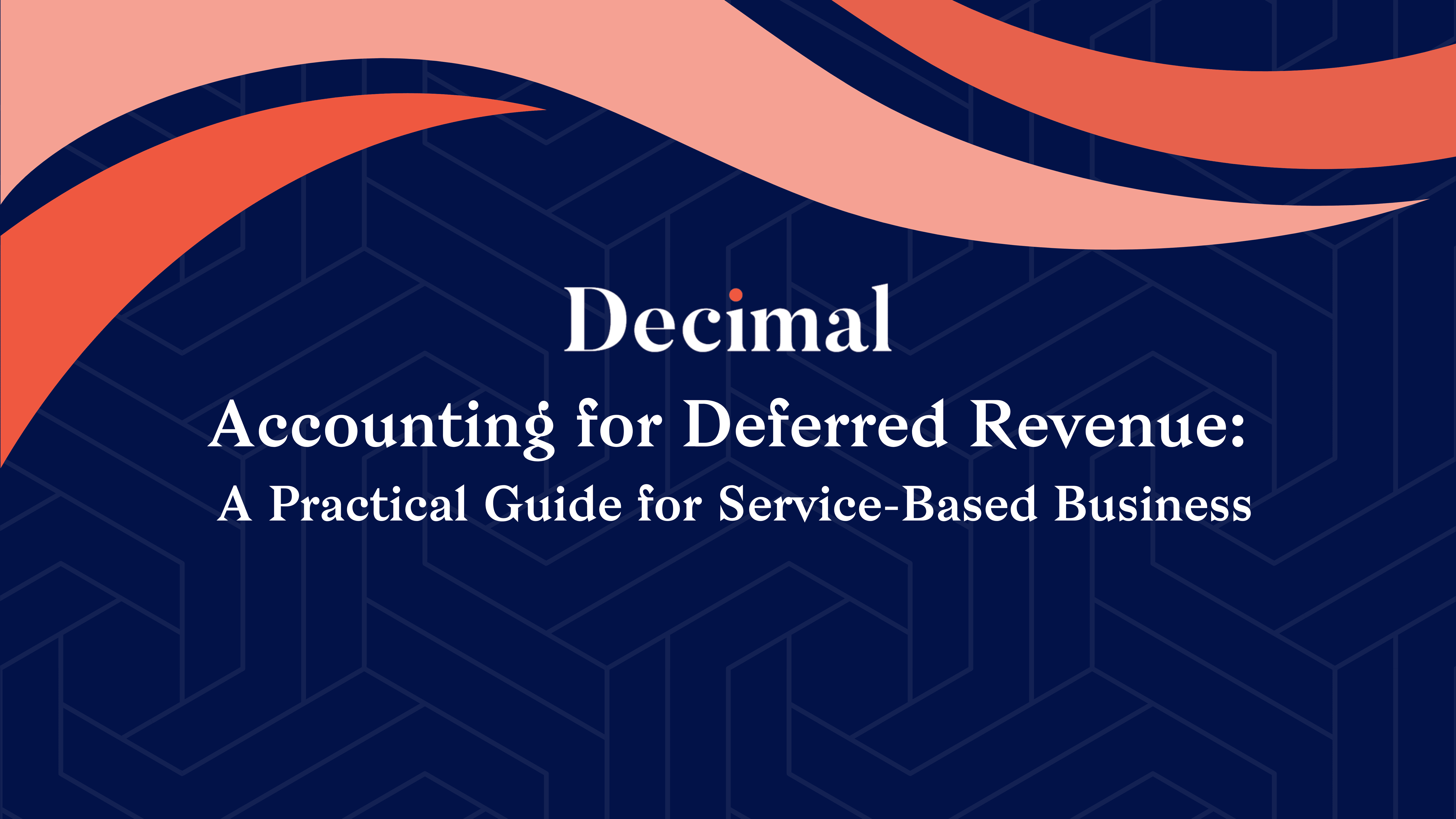Accounting for Deferred Revenue: A Practical Guide for Service-Based Businesses
What Is Deferred Revenue?
Deferred revenue is a liability that reflects income received for goods or services not yet delivered. According to accrual accounting principles, revenue is only recognized when it is earned, regardless of when cash is collected.
If a customer pays for a 12-month service contract in advance, the business cannot recognize the entire payment as income immediately. Instead, it records the full amount as deferred revenue and gradually recognizes it as revenue each month as services are delivered.
Why Deferred Revenue Matters
Properly accounting for deferred revenue ensures that financial statements reflect accurate profitability and compliance with generally accepted accounting principles. It prevents overstatement of income in the current period and aligns revenue with the delivery of services.
Key reasons deferred revenue matters:
- Provides a more accurate view of revenue and profitability
- Ensures financial statements comply with accrual accounting standards
- Supports tax planning by properly timing revenue recognition
- Improves forecasting of recurring revenue for subscription-based models
- Reduces the risk of audit issues or financial restatements
For service-based businesses, deferred revenue plays a central role in financial integrity and operational transparency.
How to Record Deferred Revenue
Recording deferred revenue involves two primary steps: capturing the upfront payment and recognizing revenue over time.
- At the time of payment:
- Debit cash
- Credit deferred revenue (liability account)
- As revenue is earned:
- Debit deferred revenue
- Credit revenue (income account)
This process continues until the business has delivered all the contracted services and the deferred revenue balance is fully recognized.
For example, if a customer pays $12,000 upfront for a one-year service contract, the business initially records the full $12,000 as deferred revenue. Each month, it would recognize $1,000 as earned revenue until the contract is complete.
Best Practices for Managing Deferred Revenue
To maintain accuracy and ensure compliance, businesses should implement clear processes for tracking and recognizing deferred revenue.
1. Use a dedicated liability account
Create a separate deferred revenue account on your balance sheet to track unearned income. Avoid combining it with earned revenue or accounts payable.
2. Automate revenue recognition
Use accounting software that supports scheduled revenue recognition. This automates monthly entries and reduces the risk of errors or omissions.
3. Match revenue to performance obligations
Ensure your recognition schedule aligns with when services are actually delivered. Avoid front-loading revenue for multi-month or long-term engagements.
4. Monitor contract terms carefully
Track start and end dates for each contract or subscription. Include provisions for cancellations, renewals, or partial fulfillment.
5. Reconcile monthly
Review deferred revenue balances regularly to confirm they match open contracts and service periods. This supports accurate financial reporting and audit readiness.
Deferred Revenue and Tax Implications
In most cases, businesses must follow the same revenue recognition principles for tax purposes as they do for financial reporting. However, specific rules may vary depending on entity type, method of accounting, or industry.
Some small businesses using the cash method of accounting may recognize revenue when payment is received, not when earned. However, those on the accrual method must track deferred revenue and recognize it appropriately over time.
Working with a tax advisor helps ensure compliance with federal and state tax requirements related to deferred income.
Common Challenges and How to Address Them
Overstating revenue: Recognizing full payment as income at the time of receipt inflates current revenue and misrepresents future obligations.
Inconsistent recognition schedules: Manual tracking can lead to inconsistent revenue recognition across similar contracts. Standardize policies to ensure uniformity.
Missed adjustments during renewals or cancellations: Adjust deferred revenue schedules when contract terms change. Review open balances regularly to reflect changes.
Conclusion
Deferred revenue is a critical accounting concept for service-based businesses, especially those operating on prepaid models or subscription agreements. Properly managing deferred revenue ensures financial accuracy, regulatory compliance, and a clearer picture of business performance.
If you’re looking for expert guidance to simplify your tax filing process, schedule a time with a Decimal expert at https://www.decimal.com/contact-us
Getting started in days.
Ready to simplify your accounting? Schedule a call with our team and explore your options. We’d love to hear from you!

